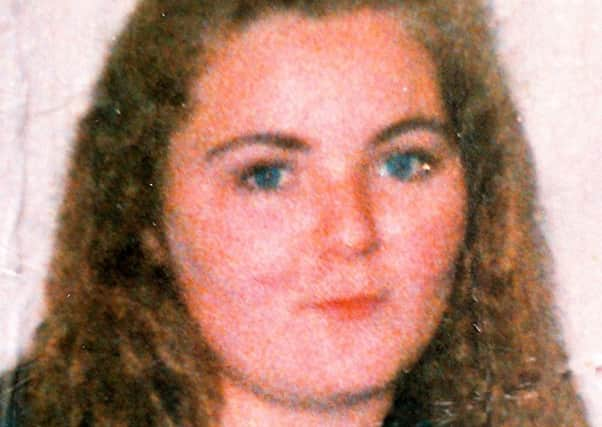Arlene Arkinson inquest: Villiers defends non-disclosure of files


Although ministerial intervention in the case of Arlene Arkinson is “unusual”, the Northern Ireland Secretary said it was necessary to prevent publication of information which could hamper future police investigations.
Ms Villiers said: “For various reasons there is ministerial involvement in Northern Ireland.
Advertisement
Hide AdAdvertisement
Hide Ad“The reality is there would only be withholding of information which would effectively make it more difficult for the police to bring to justice people responsible for this kind of horrible crime in the future.
“I think it is important also to be aware that the coroner is looking at all the information and it is the coroner who will decide whether any of it gets withheld.”
Judge Brian Sherrard, who is presiding over the long-delayed inquest, has sought further clarification on the grounds for the Public Interest Immunity (PII) application lodged by the Northern Ireland Office.
He heard legal submissions on the contentious move during a private hearing on Tuesday but has requested further information before making a final decision.
Advertisement
Hide AdAdvertisement
Hide AdIn a public court hearing ahead of Tuesday’s behind-closed-doors session, it emerged that the classified files name a man interrogated by paramilitaries and the person whose bogus tip-off prompted police to dig up a bereaved family member’s garden.
Lawyers for the Arkinson family had argued that the identities of those individuals should be made public.
Ms Villiers added: “Ministers cannot arbitrarily withhold things because they think that is an appropriate thing to do. We are constrained by long-debated rules that have been established in a long history of case law and we will just have to see what the outcome of this case is.
“It is hugely sensitive and I have huge sympathy to the family of the victim.
Advertisement
Hide AdAdvertisement
Hide Ad“It is quite unusual for there to be any ministerial involvement in this kind of thing but the reality is that it is the coroner who will decide whether this information needs to be protected or it doesn’t.”
Arlene, a 15-year-old from Castlederg, Co Tyrone, vanished after a night out at a disco across the Irish border in Co Donegal in 1994. Her body has never been found.
She was last seen with convicted child killer Robert Howard, who died in prison last year.
Despite being acquitted of the murder by a jury unaware of his long record of sex crimes, including the murder of a south London schoolgirl, he always remained the police’s prime suspect in Arlene’s death.
Advertisement
Hide AdAdvertisement
Hide AdControversy erupted last week, just days before the long-delayed inquest was due to start, when the Government signed off on the PII bid.
Grounds for PII include matters of national security or the protection of police methodologies such as the use of informers.
While the Government has obtained such immunity on sensitive papers relating to legacy terrorist cases in Northern Ireland, doubt surrounds why such issues would be at play at the inquest into the death of a missing schoolgirl.
One section of the papers subject to the PII application relates to an unnamed individual who had been abducted and questioned about the murder by the republican Irish National Liberation Army (INLA).
Advertisement
Hide AdAdvertisement
Hide AdThe files also refer to an episode two years after Arlene disappeared when police, accompanied by members of the media, arrived at the home of her sister Kathleen Arkinson and dug up the house and garden searching for a body. Nothing was found.
Howard, 71, had been due to give evidence before the inquest. He died at HMP Frankland in Co Durham last October.